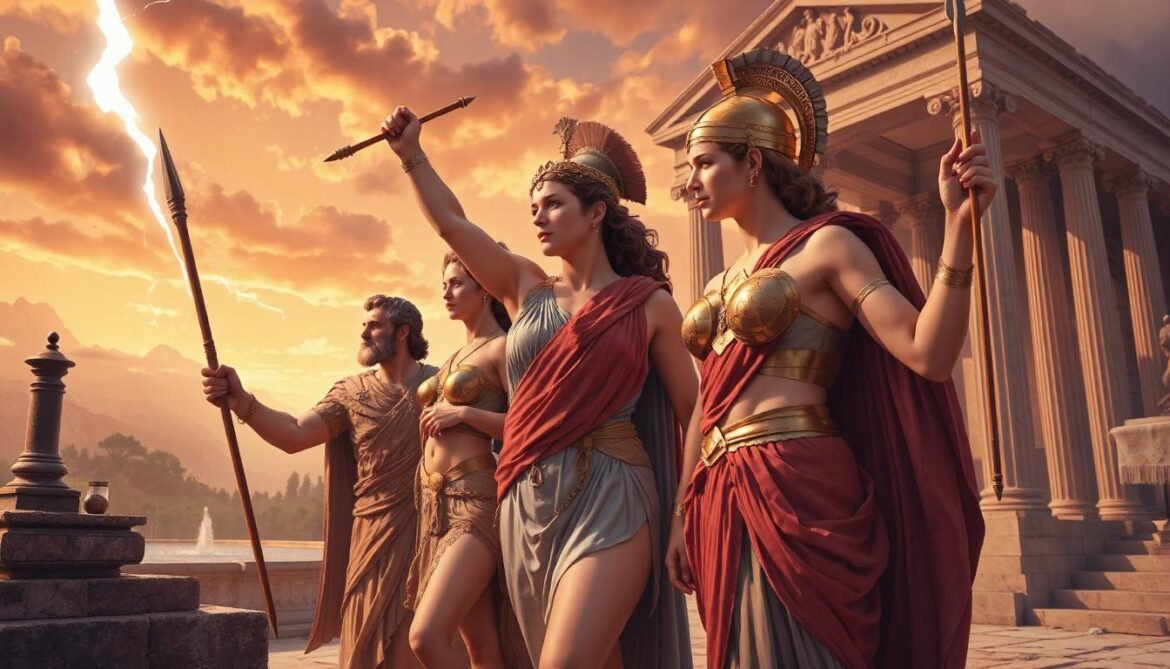The Gods and Goddesses of Ancient Rome
Grades: 6 – 8
Subjects: Anthropology, Archaeology, Social Studies, World History
The Roman Empire was primarily a polytheistic civilization, which meant that people recognized and worshiped multiple gods and goddesses. Despite the presence of monotheistic religions within the empire, such as Judaism and early Christianity, Romans honored many deities. They believed these gods and goddesses helped shape daily life and played a role in the founding of Roman civilization. Romans paid allegiance to the gods both in public spaces and in private homes. While the state decorated public buildings and fountains with the images of main deities, families often focused on the gods they personally chose to honor.
Influence of Greek Culture
Roman gods and goddesses were heavily influenced by Greek culture. Rome’s geographic position led to frequent contact with the Greeks, who had expanded into the Italian peninsula and Sicily. As the Roman Republic grew, it absorbed these territories, bringing Greek culture under Roman administration. Many Greek gods were adopted by the Romans, though their names and attributes were slightly modified to fit Roman culture.
For example:
-
Jupiter (from Greek Zeus) was a sky god who oversaw all aspects of life and protected the Roman state. Military commanders would honor him at his temple after victories.
-
Juno (from Greek Hera) was Jupiter’s wife and sister, watching over women and their lives.
-
Minerva (from Greek Athena) was the goddess of wisdom and crafts, protecting schoolchildren and artisans such as carpenters and stonemasons.
Other Roman gods with Greek origins include:
-
Venus (Aphrodite), goddess of love
-
Neptune (Poseidon), god of the sea
-
Pluto (Hades), ruler of the underworld
-
Diana (Artemis), goddess of the hunt
-
Mars (Ares), god of war
Just as the Greeks influenced Roman culture, the Romans influenced later societies. Many planets in our solar system are named after Roman gods.
Unique Roman Deities
Some Roman gods had no Greek counterparts:
-
Janus, the two-faced god of doorways, gates, and beginnings, for whom January is named
-
Tiberinus, god of the Tiber River and son of Janus
Gods in Roman Mythology
Roman mythology also connected the gods to the founding of Rome. Mars, god of war, and the Vestal Virgin Rhea Silvia were the parents of twins Romulus and Remus. Vestal Virgins were forbidden to marry or have children, dedicating their lives to serving Vesta, goddess of the hearth.
King Amulius, punishing Rhea Silvia for breaking her vow of celibacy, ordered the twins thrown into the Tiber River. They were rescued by a mother wolf and later adopted by a local couple. As adults, Romulus and Remus overthrew King Amulius and founded a new city. During a later dispute, Romulus killed Remus and named the city Rome.
Religion in Daily Life
Gods and goddesses played an essential role in Roman life. Temples were built in their honor, and rituals and festivals were observed. Romans believed favorable or unfavorable events reflected the gods’ moods, so offerings were made to show gratitude or appease their tempers. Unlike many monotheistic religions, Roman gods were not concerned with morality but with being properly honored through ritual.
Legacy
Artifacts and art still show the presence of Roman gods today. Carvings of Janus survive, and statues of Neptune continue to spout water from city fountains. The mythology surrounding these deities offers insights into what life was like over 2,700 years ago in ancient Rome.
